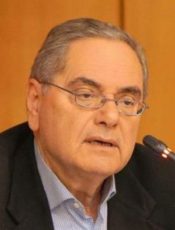Not long ago, Turkey and Russia reached the brink of war when a Russian warplane was shot from the skies over Syria by a Turkish missile. A long period of escalating animosity followed culminating in an embarrassing apology that the President of Turkey directed to Vladimir Putin. Russia resumed normal relations with Turkey without forgetting the treachery that led to a situation of near conflict. The assassination of the Russian ambassador to Ankara by an Islamist policeman did not contribute to the process of normalization of relations between the two countries.
The situation now appears relatively normal with cordiality characterizing the atmosphere among the Kremlin and Ankara. Is however Turkey a trustworthy friend? To what extend can Russia build upon a relationship based solely on the disposition of one man? Is President Erdogan, on the basis of his hitherto political behaviour and diplomatic manoeuvring, to be trusted and relied upon? Presumably, Russia can capitalize on the difficulties that Turkey's erratic behaviour has brought upon NATO. This exact behaviour however substantiates the lack of credibility that Turkey carries to all its foreign relations and endeavours.
For decades, Turkey appeared to be a bastion of stability for the defensive orientations of NATO. But the emergence of Recep Tayip Erdogan and his AKP (Justice and. Development Party) to the forefront of Turkish political life has shaken these firm foundations. Not from the beginning, however. For a long time the mild version of Islam that the AKP purported displayed Erdogan as a social democratic leader eager to bring the overlooked marginal poor and agrarian population of Turkey to society’s forefront. An Islamic free market regime was supposed to be the target of the AKP’s reform agenda.
Up to a point however. Quite abruptly, the Turkish leader decided to opt for a revival of Turkey’s Ottoman past and his choice of a modern day Sultan behaviour, with most of his traditional powers, could not be concealed. This signalled his objectionable choice of new friends and ideological allies. He quite clearly decided to play the card of a pure sharia supporting Islamic leader, by making it clear that there can never be a distinction between moderate and extreme Islam. “There can only be one Islam” he reiterated. Likewise, his rather friendly disposition towards the Islamic State militants could not initially be concealed. The hundreds of thousands of Syrian refugees flooding Turkey were by and large Sunni adherents of ISIS who escaped areas recaptured by Assad’s government forces or driven away by the Shia militias and the Kurdish forces who rooted the jihadi armies. Only then, when the areas controlled by ISIS were diminished, did Turkey decide to join forces with Russia and Iran to deal with the situation. Presumably, because of fear for the destiny of areas now under the control of Kurds.
NATO and the West have already had a taste of Turkey’s unreliability. There are voices already calling for its expulsion from the western alliance (see Daniel Pipes, "NATO's Turkey Challenge" in Frank J. Gaffney. Jr (ed), ALLY NO MORE: Erdogan's New Turkish Caliphate and the Rising Jihadist Threat to the West. Center for Security Policy, 2018, p.92). Nevertheless, there are many pending issues as far as Turkey and its western allies are concerned.
The West no longer looks upon Turkey as a reliable ally. Especially after Erdogan decided to play a heavy Islamic card, to break up with his former moderate Gulen supporters and to open ubiquitous relations with Iran and with radical Muslim Brotherhood organizations in Egypt, Jordan and elsewhere. On the basis of these observations, to what extend can Russia view Mr Erdogan as an honest friend, upholding future obligations and behaving in a trustworthy manner?









